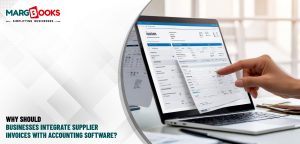As a small business owner, keeping track of your finances is crucial for success. Accounting plays a vital role in understanding how your business is performing and making informed decisions. However, accounting can seem like a complicated subject, especially when you’re just starting. Thankfully, the three rules of accounting provide a simple and structured approach to maintaining accurate financial records. In this blog, we will break down what the three rules of accounting mean and how they can benefit small business owners like you.
Understanding the Three Rules of Accounting
The three rules of accounting are fundamental principles that help ensure your financial records are balanced, accurate, and consistent. These rules guide how transactions are recorded in your accounting books and allow for effective financial reporting. The three rules are:
1. The Rule of Debit and Credit
This is the most important rule in accounting, and it dictates how every financial transaction is recorded. According to this rule:
- Debit increases asset accounts and expense accounts.
- Credit increases liability accounts, equity accounts, and revenue accounts.
In simple terms, every time a transaction occurs, one account is debited (increased) while another is credited (decreased). For example, if your business purchases office supplies with cash, you will debit the office supplies account (an asset) and credit your cash account (another asset).
This rule ensures that every transaction is recorded in two places, keeping the accounting equation Assets = Liabilities + Equity balanced. It’s a system that helps prevent errors and ensures your financial records are accurate.
2. The Rule of Recording Transactions in the Correct Account
This rule is all about ensuring that transactions are recorded in the right account category. The primary accounts used in accounting are:
- Assets: What the business owns (e.g., cash, inventory, equipment)
- Liabilities: What the business owes (e.g., loans, accounts payable)
- Equity: The owner’s investment in the business (e.g., capital, retained earnings)
- Revenue: Money the business earns (e.g., sales, interest)
- Expenses: The costs of running the business (e.g., rent, utilities, salaries)
The rule emphasizes that each transaction must be accurately classified into one of these categories. For example, if you make a sale, the revenue account should be credited, and if you pay rent, the expense account should be debited.
This rule helps create a clear picture of where your money is coming from and where it’s going, which is essential for both short-term cash flow management and long-term strategic planning.
3. The Rule of Double-Entry Accounting
Double-entry accounting is a method where each transaction is entered into the system twice – once as a debit and once as a credit. This rule helps maintain the balance in your books and prevents errors in your financial statements.
Under double-entry accounting, for every debit entry made, a corresponding credit entry must be recorded. For instance, if your business receives payment for a sale, you will debit the cash account (asset) and credit the sales revenue account (income).
By following the double-entry accounting rule, small business owners can track the movement of money and assets with greater accuracy. This ensures that financial statements like the balance sheet and profit-and-loss statement are always in balance.
How do These Rules Affect Your Business?
Now that we understand the three rules of accounting, let’s take a closer look at how they affect small business owners and their daily operations. These are as follows:
1. Maintaining Accurate Financial Records
By following the three rules of accounting, small business owners can ensure that their financial records are accurate and complete. This accuracy is essential when you’re preparing financial statements, paying taxes, or seeking financing. Even a small mistake in your books can have a significant impact on your business’s bottom line.
2. Improving Financial Decision Making
Accurate and organized financial records allow business owners to make better decisions. With the right data at hand, you can analyze trends, track performance, and spot potential issues before they become major problems. Whether it’s deciding whether to invest in new equipment or figuring out if you need to cut costs, accurate accounting gives you the tools you need to make informed choices.
3. Simplifying Tax Filing
At the end of the financial year, accurate accounting records are essential for filing your taxes. The government requires businesses to maintain accurate records of all income and expenses, and the three rules of accounting ensure that everything is recorded correctly. By using these rules, small business owners can avoid the stress of last-minute tax filings or facing an audit due to discrepancies in their records.
How Online Accounting Software Can Help?
Managing accounting records manually can be tedious, time-consuming, and prone to human error. That’s where online accounting software comes in. By leveraging online accounting tools, small business owners can automate the process of recording transactions, making it easier to adhere to the three rules of accounting.
Benefits of Online Accounting Software for Small Businesses:
- Real-time Tracking: Online accounting software allows you to track your business’s financial transactions in real time, ensuring that your records are always up-to-date.
- Automation: Features like automatic bank reconciliations and recurring billing reduce the chances of human error and save you time.
- Accuracy: These tools help maintain accuracy by preventing incorrect data entry and ensuring that all transactions are recorded according to the accounting principles.
- Reports & Analytics: Online accounting software generates reports that give you insights into your business’s financial health, making it easier to make decisions based on accurate data.
The Role of Online Billing Software
In addition to accounting software, online billing software can further streamline your business processes. Online billing software makes it easier to issue invoices, track payments, and ensure timely collections from clients. When integrated with accounting software, it can automatically update your records, saving time and reducing errors.
Key Features of Online Billing Software:
- Customizable Invoices: You can create professional invoices that match your brand and send them directly to clients.
- Payment Tracking: Track payments as they come in and ensure that clients settle their accounts on time.
- Automatic Reminders: Set up automatic reminders to prompt clients when payments are due, improving cash flow.
Margbooks: A Complete Solution for Small Businesses
For small business owners in India, Margbooks offers a comprehensive solution that incorporates both accounting and billing features. With Margbooks, you can easily manage your finances and generate accurate reports without hassle. It simplifies everything from managing expenses to tracking sales, allowing you to focus on growing your business.
Why Choose Margbooks?
- User-friendly Interface: Even if you’re new to accounting, Margbooks’ easy-to-use interface makes it simple to follow the three rules of accounting.
- Comprehensive Features: From inventory management to billing and tax compliance, Margbooks covers all your business needs in one platform.
- Cloud-based Access: With Margbooks, you can access your financial data from anywhere, ensuring flexibility and convenience.
Conclusion
The three rules of accounting – debit and credit, recording transactions in the correct account, and double-entry accounting – are the foundation of effective financial management. By understanding and applying these rules, small business owners can ensure accurate records, make better financial decisions, and streamline their processes.
Tools like online accounting software and online billing software can help make this process easier and more efficient, giving small businesses a clear advantage in managing their finances. With solutions like Margbooks, managing your accounting needs becomes a breeze, allowing you to focus on growing your business with confidence.




